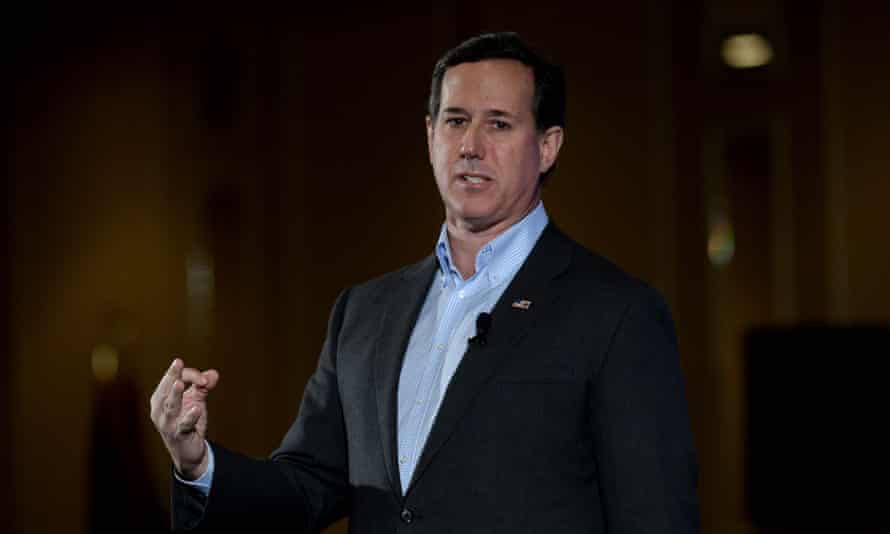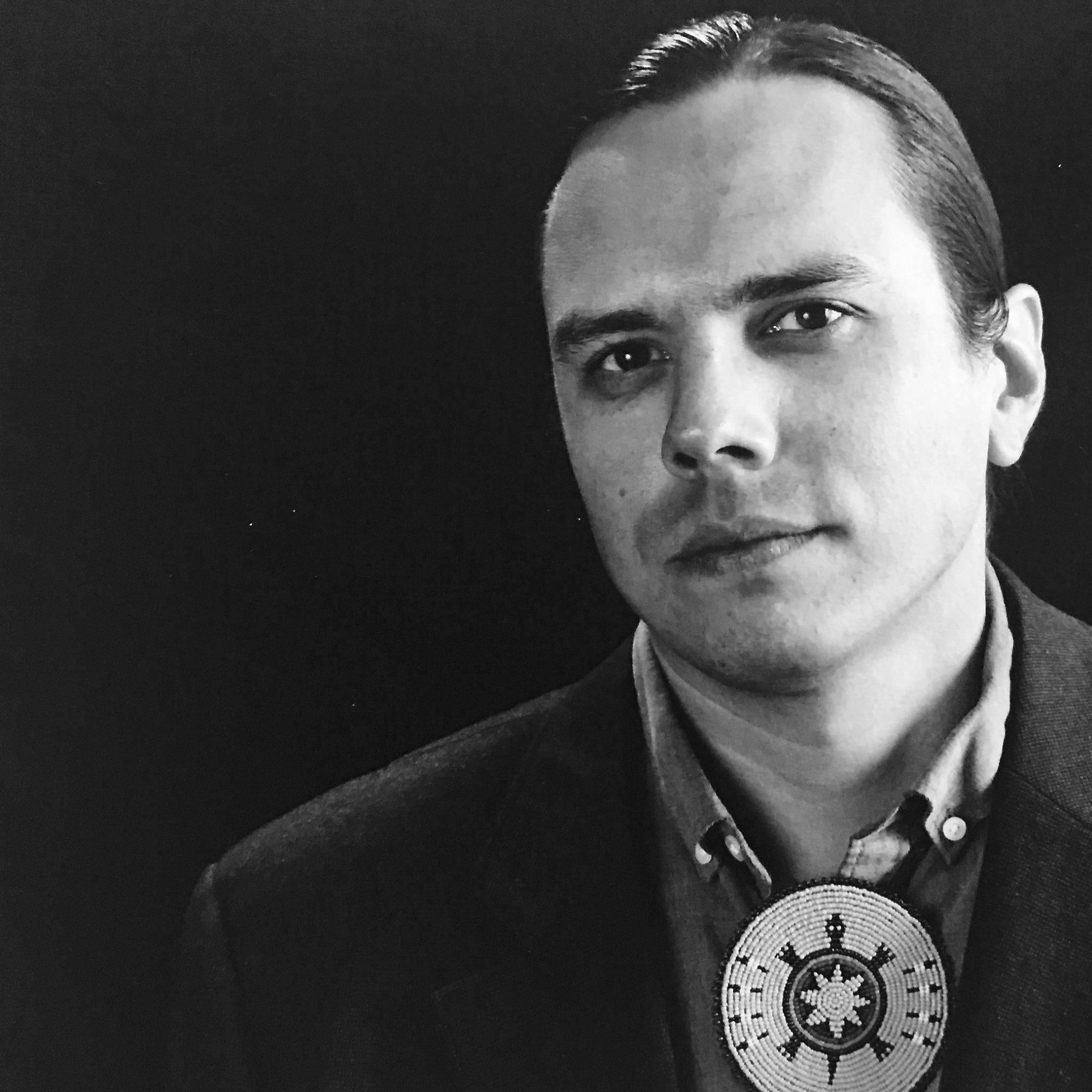By Nick Estes
The Guardian
April 27th, 2021
Although the United States quickly accuses other nations of genocide, it hasn’t acknowledged its own genocide against Indigenous people

‘Firing Rick Santorum won’t solve these deep-seated inequalities and anti-Indigenous racism.’ Photograph: Darren McCollester/Getty ImagesTue 27 Apr 2021 08.56 EDT
Last modified on Wed 28 Apr 2021 08.32 EDT
Last week, Rick Santorum repeated a widely held myth of US exceptionalism. “We came here and created a blank slate, we birthed a nation from nothing,” the former US senator and CNN commentator told the rightwing Young America’s Foundation’s summit. “It was born of the people who came here.” His “we” doesn’t include Indigenous people who were already here or African people who were brought in chains. And that “blank slate” required the violent pillaging of two continents – Africa and North America. If the United States was “birthed from nothing”, then the land and enslaved labor that made the wealth of this nation must have fallen from the sky – because it surely didn’t come from Europe.
It’s not the first time a CNN employee has espoused anti-Indigenous racism. Last November during live election night coverage, CNN labeled Native American voters as “something else”. The Native American Journalist Association (NAJA) asked CNN to issue an apology, which it refused to do. And just last week, CNN host Poppy Harlow misidentified the Minnesota lieutenant governor Peggy Flanagan, a member of the White Earth Band of Ojibwe, as “a white woman”. The network has yet to correct the error. NAJA (of which I’m a member) has since called for the firing of Rick Santorum and its membership to avoid working with CNN for its lack of ethics and accountability around various racist views among its staff.
Racist depictions of Indigenous people in the media, however, points to a deeper issue. The erasure of Native histories and peoples – which existed long before and despite a white supremacist empire – is a founding principle of the United States. In fact, it’s still codified in US law. So when Rick Santorum and his ilk stress that Europeans possess a divine right to take a continent, create a nation from “nothing”, and maintain cultural superiority, they’re not entirely wrong. It’s the default position with a long sordid history.
And maybe Santorum and his kind are right when they position the US as a Christian theocratic nation. After all, the founding principles of land theft, enslavement and dispossession stem from religious justifications. A 1493 papal decree known as the doctrine of discovery, justified the Christian European conquest of Africa, Asia, Oceania and the Americas. As secretary of state in 1792, Thomas Jefferson declared the doctrine, implemented by European states, was international law and thus applied to the nascent United States as well.
Those views later inspired the Monroe doctrine, the assertion of US supremacy over the western hemisphere, and manifest destiny, the ideological justification of US westward expansion and colonization. An 1823 US supreme court case, Johnson v M’Intosh, upheld the doctrine, privileging European nations, and successors like the United States, title via “discovery” over Indigenous lands. Indigenous nations and sovereignty, the court ruled, “were necessarily diminished”.
Such a legal and political reality for Indigenous people is so taken for granted that it is rarely mentioned in history books let alone mainstream commentary. Instead, a culture of amnesia permeates the United States. But purposeful forgetting can’t erase intent, it only perpetuates injury. Erasure makes the taking of Indigenous land easier.
Although the United States quickly accuses other nations of genocide, it hasn’t acknowledged its own genocide against Indigenous people. To affirm it would mean to take measures to prevent it from happening again. That would mean halting ongoing theft and destruction of Indigenous lands, cultures and nations. A process of justice would have to follow suit. An entire legal order that underpins the backwards racist views and practices towards Indigenous people would have to be overturned. Indigenous land and political rights would have to be restored. A savage nation built of untold violence would have to be finally civilized and make amends with the people and nations it has attempted to destroy. After all the elimination of Indigenous nations was not only about taking the land, it was also about destroying an alternative – a world based on making and being in good relations versus that of a racialized class system based on property and conquest.
That world still exists, and its stories still need to be told by Indigenous people.
That’s a tall order that takes willpower, courage, and truth-telling we simply don’t see emanating from corporate newsrooms like CNN, to say nothing of political and ruling elite in this country. Firing Rick Santorum won’t solve these deep-seated inequalities and anti-Indigenous racism. But Indigenous genocide denial – the ultimate cancel culture – should have no platform if we are to finally transcend the 15th century racialist views codified in the doctrine of discovery.
- Nick Estes is a citizen of the Lower Brule Sioux Tribe. He is an assistant professor in the American studies department at the University of New Mexico. In 2014, he co-founded The Red Nation, an Indigenous resistance organization. He is the author of the book Our History Is the Future: Standing Rock Versus the Dakota Access Pipeline, and the Long Tradition of Indigenous Resistance (Verso, 2019)







